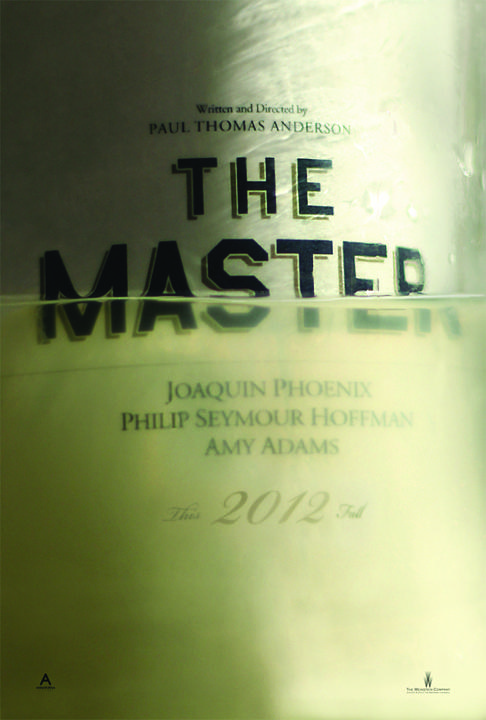“The Master” Makes for Thought-Provoking Experience
The poster for Paul Thomas Anderson’s gloriously ambitious “The Master.” (Courtesy of the Weinstein Company)
September 19, 2012
As fall approaches, the inevitable onslaught of awards talk and barrage of Oscar-bound films hitting the screen is fast approaching. Despite sneaking in with an early September release, I find it difficult to believe that any other film this year will be able to compete with the grandness and virtuosity of “The Master.” It is a movie that is elusive, absorbing and, yes, masterful.

The film begins with Freddie Quell (Joaquin Phoenix) returning home from WWII. Scenes of his final days at sea and his debriefing reveal him as deeply unusual, with a funny way of talking and a fixation on sex. Once back in the real world, he tries to assimilate back into normality by getting a job as a department store portait photographer. His attempt to transition back into leading a civilian life is hindered by his anger as well as his preoccupations with sex and alcohol, the latter of which he obsessively concocts by using other questionable ingredients such as paint thinner and gasoline.
Through a strange twist of fate, he ends up sneaking onto an ocean liner that is holding a wedding ceremony. The father of the bride and the commander of the ship is Lancaster Dodd (Philip Seymour Hoffman), who has spearheaded a movement known as “The Cause” that involves religion and philosophy. Lancaster takes an interest in Freddie and brings him along as he promotes “The Cause” and even uses him for various exercises and experiments. Soon, opposition to “The Cause” grows more and more pervasive as the dynamics within Lancaster’s clan become increasingly hostile and manipulative.
While that plot synopsis may make it appear so, “The Master” is anything but straightforward. Director Paul Thomas Anderson allows the movie to unfold in a style as erratic and discordant as Freddie. The meanings and motivations of its characters, as well as the mood of its scenes, are often opaque and inconsistent. In addition, it takes on an almost cyclical and hallucinatory structure in the way it circles back to images and events we have seen before. For all of its formalist touches, it is as strange of a movie as you are likely to see this year.
“The Master” is also a gloriously ambitious piece of filmmaking. As with his last film, 2007’s “There Will Be Blood,” Anderson has crafted a period piece set in the American West that focuses on specific and fictional characters and circumstances but is able to imply volumes—making it both intimate and epic. One can see Freddie as representative of an entire generation of men who returned home from war broken and had trouble finding direction after being under leadership for so long.
Many have also inferred that “The Cause” is a representation of the early days of Scientology, which is apparent in the out-there, sci-fi philosophies that Lancaster espouses. But disappointment is likely to come to those who go into “The Master” expecting something of an explicit criticism or exploration of the movement. The particulars of “The Cause” remain intentionally vague and almost on the periphery of the film, as it focuses on the developing relationship between these two men.
And those two men sure do make an indelible impression on screen. As Freddie, Phoenix is simply astounding as someone who seems to be the literal embodiment of nervous aggression. Hoffman is equally terrific as Lancaster Dodd, whose composure and assurance go from sincere to desperate as support for “The Cause” begins to wane. Amy Adams also makes a strong impression as Lancaster’s wife, whose devotion to “The Cause,” and firm control over her husband, allow for one to interpret in many ways who “the master” of the title is actually referring to.
For all of its historical emphasis, “The Master” ends up feeling oddly timely. The time of its release coincides with a much talked about exposé of the bizarre practices of Scientology in this month’s issue of Vanity Fair. And one can also relate it to the upcoming election, which has already provoked plenty of discussion about who should be leader and what that role should fully entail. Filmmaking this bold and thought provoking feels not just relevant, but almost necessary.













